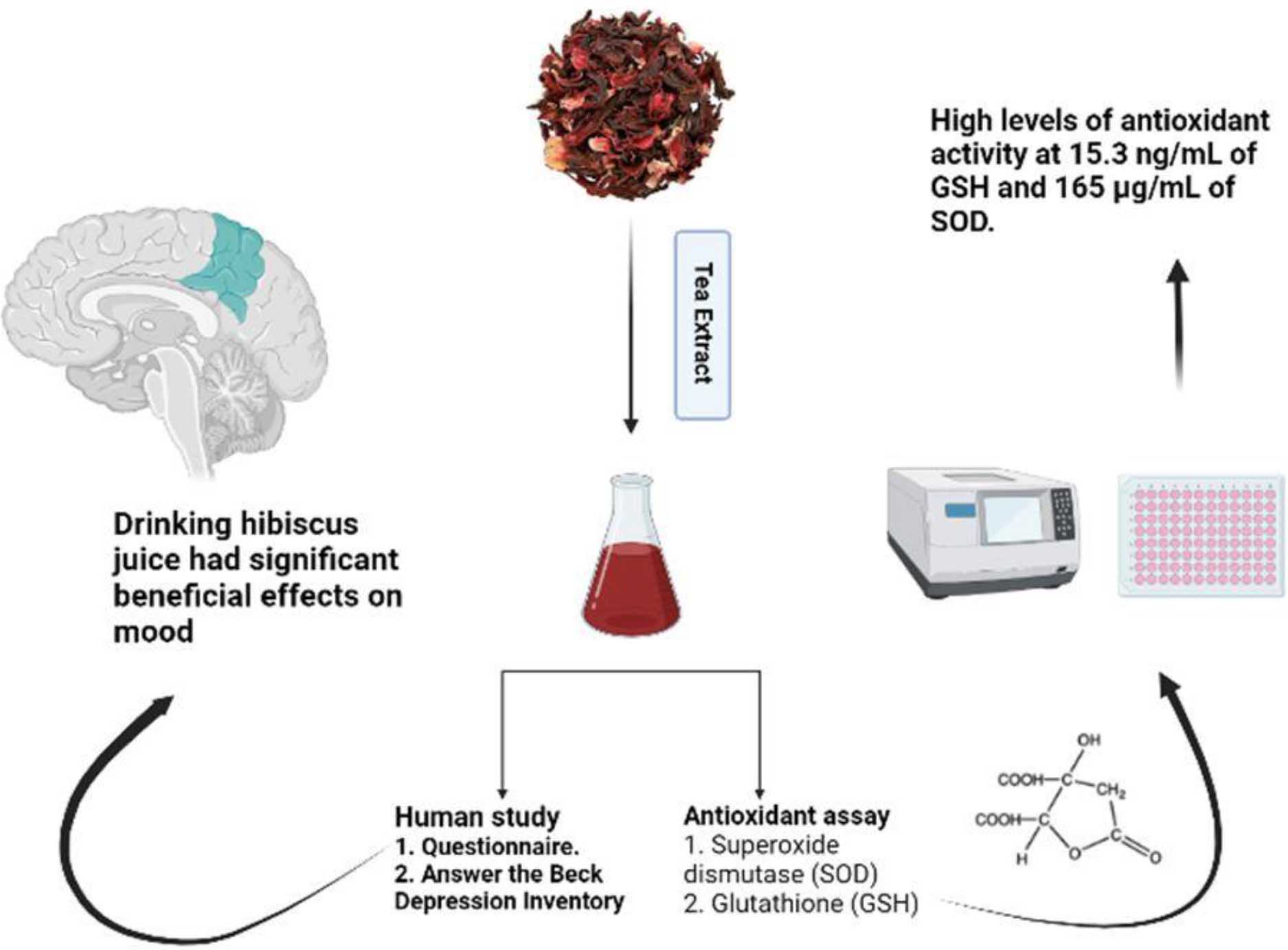The Effect of Roselle (Hibiscus) Juice on Mood Improvement in Healthy Adults
DOI:
https://doi.org/10.31989/ffhd.v12i10.985Abstract
Introduction: The juice of Hibiscus sabdariffa Linn is commonly used as a traditional medicine for hypertension, pyrexia, and mood improvement. This study aimed to examine the effect of hibiscus juice on the mood states of healthy Saudi adults.
Methods: A total of 32 healthy adults were asked to complete a questionnaire and were subsequently provided with 250 mL of prepared hibiscus juice to drink daily for 1 week. The participants were instructed to answer the Beck Depression Inventory before and after 1 week of drinking the hibiscus juice daily.
Results: The results indicated a significantly positive change in the participants’ daily mood after 1 week of drinking 250 mL of hibiscus juice daily. Drinking hibiscus juice enhanced mood status by increasing relaxation and decreasing fear of the future and heart palpitations in most participants. Furthermore, it increased the consumption of caffeinated drinks. However, drinking hibiscus juice had no effect on the number of meals consumed.
Conclusion: Drinking hibiscus juice had significant beneficial effects on mood. These results may be useful for future public health recommendations, especially among young adults and children. Further studies with larger sample sizes and longer experimental durations are needed to confirm and generalise these findings.

Keywords: Mood Improvement, Cognitive, Hibiscus, Saudi Arabia, Adults
Downloads
Published
Issue
Section
License
Any manuscripts or substantial parts of it, submitted to the journal must not be under consideration by or previously published in any other journal or citable form. Authors are required to ensure that no material submitted as part of a manuscript infringes existing copyrights or the rights of a third party. In submitting one's article in any form, the author has assigned the FFC publishing rights and has agreed to an automatic transfer of the copyright to the publisher. This is so that the FFC may create print option journals, for example, at the FFC’s discretion. If the author wishes to distribute their works by means outside of the FFC, for example within their community, they will have to place a request.
Correspondence concerning articles published in Functional Foods in Health and Disease is encouraged. While derivative works (adaptations, extensions on the current work, etc.) are allowed, distribution of the modified material is not allowed without permission from the FFC.